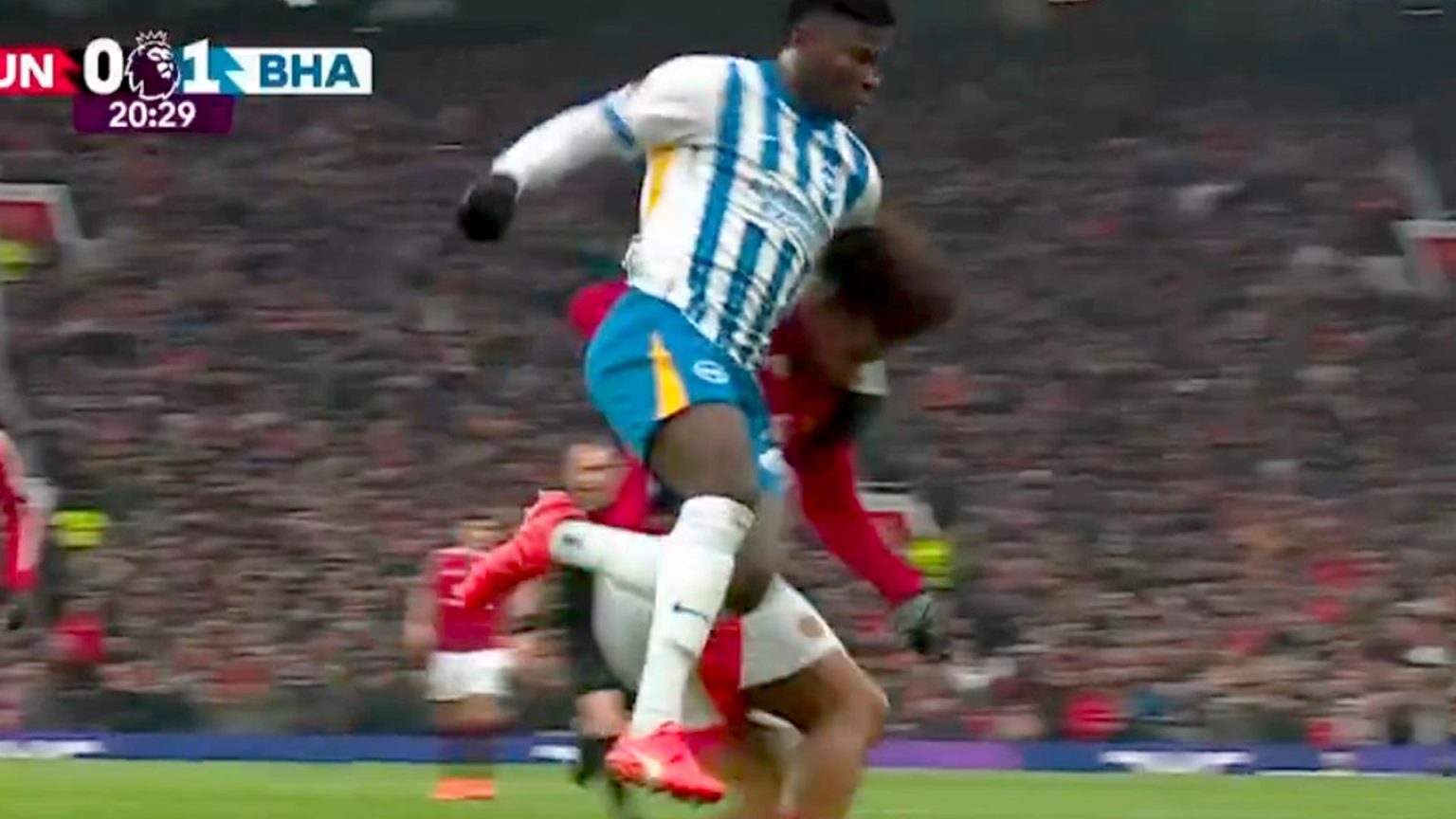The controversial decision not to send off Brighton midfielder Carlos Baleba during Manchester United’s match at Old Trafford sparked outrage among United supporters. The incident occurred after Brighton took an early lead through Yankuba Minteh’s fifth-minute goal. United’s Joshua Zirkzee found himself with a clear opportunity on goal, only to be hauled down by Baleba, preventing a potential equalizer. While referee Andy Madley awarded a penalty, which Bruno Fernandes converted, he opted to only issue a yellow card to Baleba, igniting a firestorm of debate among fans and pundits alike. The core of the contention revolves around the interpretation of the denial of an obvious goal-scoring opportunity (DOGSO) rule.
The laws of the game stipulate that a deliberate foul, such as holding, pulling, or pushing, which denies a clear goal-scoring opportunity inside the penalty area, should result in both a penalty kick and a red card for the offending player. However, if the referee deems the foul to be an attempt to play the ball or challenge for possession, a yellow card is sufficient. In Baleba’s case, Madley appeared to interpret the foul as an attempt to challenge for the ball, hence the yellow card. This decision, however, was met with widespread disbelief and anger from Manchester United fans, who argued that Baleba’s actions were deliberate and cynical, denying Zirkzee a clear chance to score.
The online reaction from United supporters was swift and vehement. Many questioned the consistency and clarity of the DOGSO rule, expressing frustration at what they perceived as lenient treatment for Baleba. Comments flooded social media platforms, with fans arguing that Baleba’s action was a clear last-man foul, warranting a red card. The debate intensified with replays of the incident showing Baleba appearing to wrap his arms around Zirkzee, seemingly impeding his progress rather than making a genuine attempt to play the ball. This visual evidence further fueled the fans’ anger, with some describing Baleba’s actions as a “wrestling move” and questioning the referee’s judgment.
The incident also highlighted the ongoing complexities and nuances of the DOGSO rule. While the laws of the game provide a framework, the interpretation and application of the rule often depend on the referee’s assessment of the situation in real-time. This subjectivity inevitably leads to disagreements and controversies, particularly in high-stakes matches like the one between Manchester United and Brighton. The Baleba incident serves as a prime example of the challenges referees face in making split-second decisions that can significantly impact the outcome of a game, and the intense scrutiny they face under the watchful eyes of fans and analysts.
The controversy surrounding Baleba’s yellow card also underscores the importance of clear and consistent application of the rules. The lack of a clear definition of what constitutes a “genuine attempt to play the ball” leaves room for interpretation and inconsistencies in decision-making. This ambiguity can lead to frustration and confusion among players, managers, and fans, ultimately undermining the integrity of the game. The incident calls for greater clarity and consistency in the application of the DOGSO rule, perhaps through more detailed guidelines and examples, to minimize contentious decisions and ensure fairness in the sport.
Beyond the immediate implications of the yellow card, the incident raises broader questions about the evolution of the game and the increasing emphasis on protecting attacking players. With the rise of fast-paced, attacking football, the need to deter cynical fouls that disrupt attacking moves has become more critical. The debate over Baleba’s yellow card highlights the ongoing discussion about finding the right balance between allowing physical challenges and protecting attacking players from cynical fouls that deny clear goal-scoring opportunities. The incident might prompt further discussion and potential refinements to the DOGSO rule to ensure greater fairness and consistency in its application, promoting the spirit of the game and protecting the integrity of the sport.




